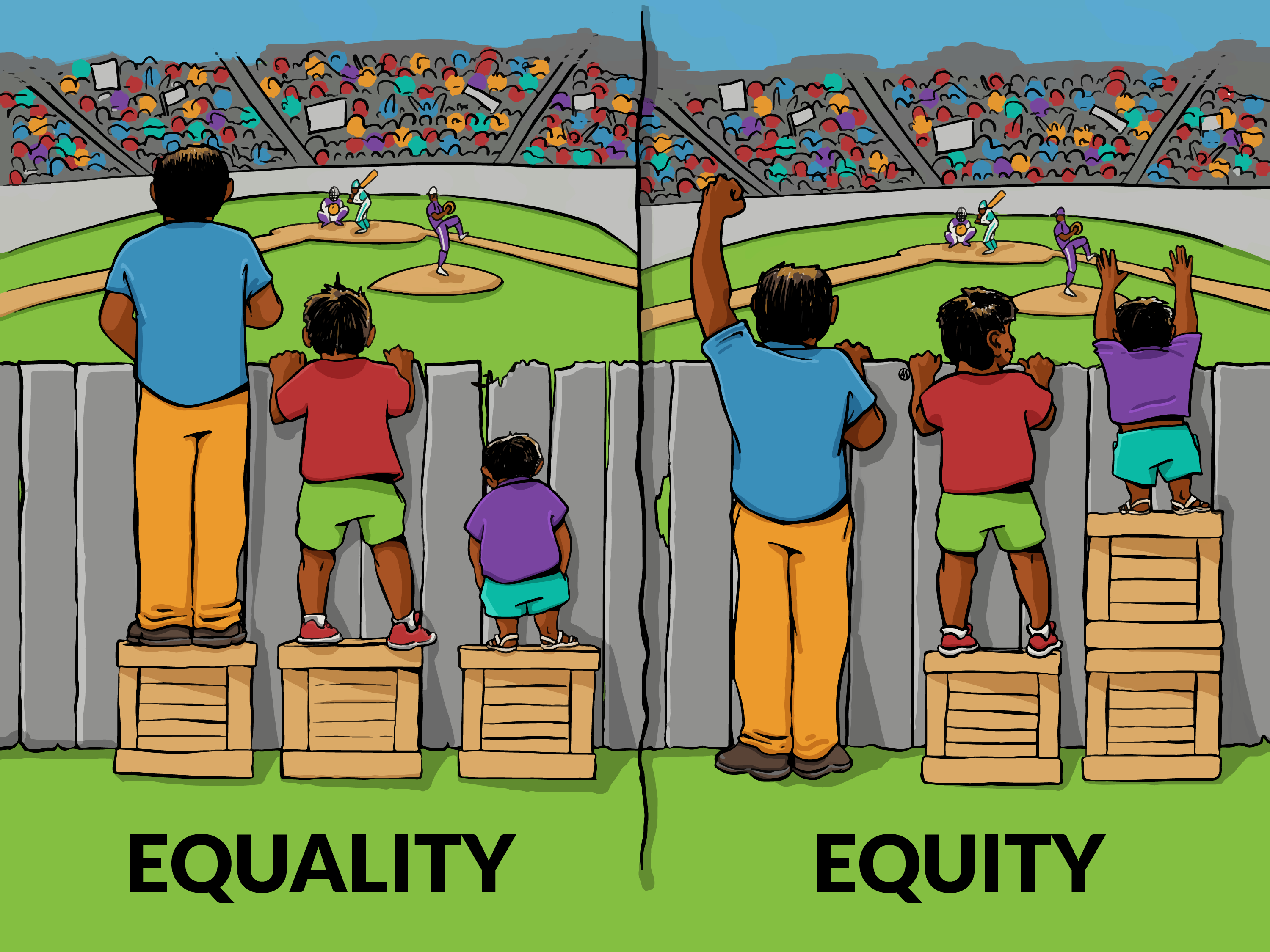The fox knows many things, but the hedgehog knows one big thing. Start here: https://bayesianfox.blogspot.com/2010/12/genesis.html
Friday, July 26, 2019
Means and Ends
"Equity" has become the term du jour for the academic left. It has usurped equality, a term I imagine most Americans find admirable.
I think the important distinction is that one focuses on ends, the other on means. Equality means everyone is treated the same, regardless of outcome. Equity means we should treat people differently in order to achieve the same outcome.
If you buy into the equity narrative, you can see how claims like "racism and white supremacy are baked into American culture" make sense. White people succeed at higher rates than blacks, so it's "racist" even if no one is making judgements based on race (this claim conveniently ignores the success of Asian Americans).
So when they talk about "structural racism" or ignore the textbook definition of racism, you can understand what they are talking about. To them, this type of racism has nothing to do with treatment and everything to do with outcomes.
If you buy into the equality narrative, you don't understand how someone can be racist unless they treat people differently based on race.
In employment law, these terms exist as disparate treatment and disparate impact. The latter is something a company can get sued for even if they haven't consciously made any attempt to treat people differently based on race, gender, age, or disability.
When we use "treatment" in this context, we're really talking about discrimination. Is discrimination never okay or is it justified in certain situations? Whichever way you lean will determine which philosophy you employ.
If you prefer equity, you employ a utilitarian strategy to create the greatest good.
If you prefer equality, you view discrimination as a sacred categorical imperative in which the ends never justify the means.
If, in the name of equity, discrimination is normalized to create equal outcomes, are we then creating a world in which discrimination qua social good has the potential to be used by evil agents for nefarious purposes?
My fear is that this hypothetical world grants too much power to define something as nebulous as "social good." I'd feel better if the limitations of this power were agreed upon and the definition of the social good that justifies discrimination comes from heterodox thinking.
Subscribe to:
Post Comments (Atom)

No comments:
Post a Comment